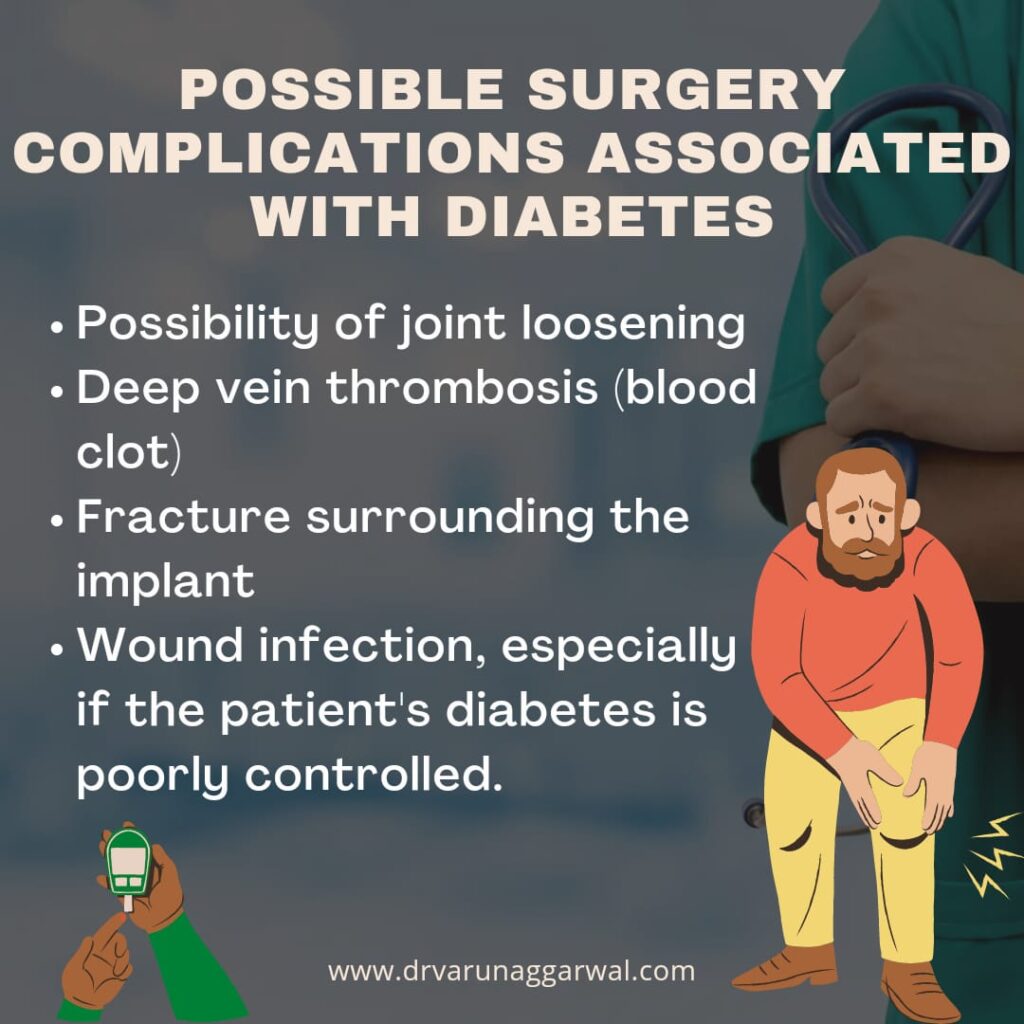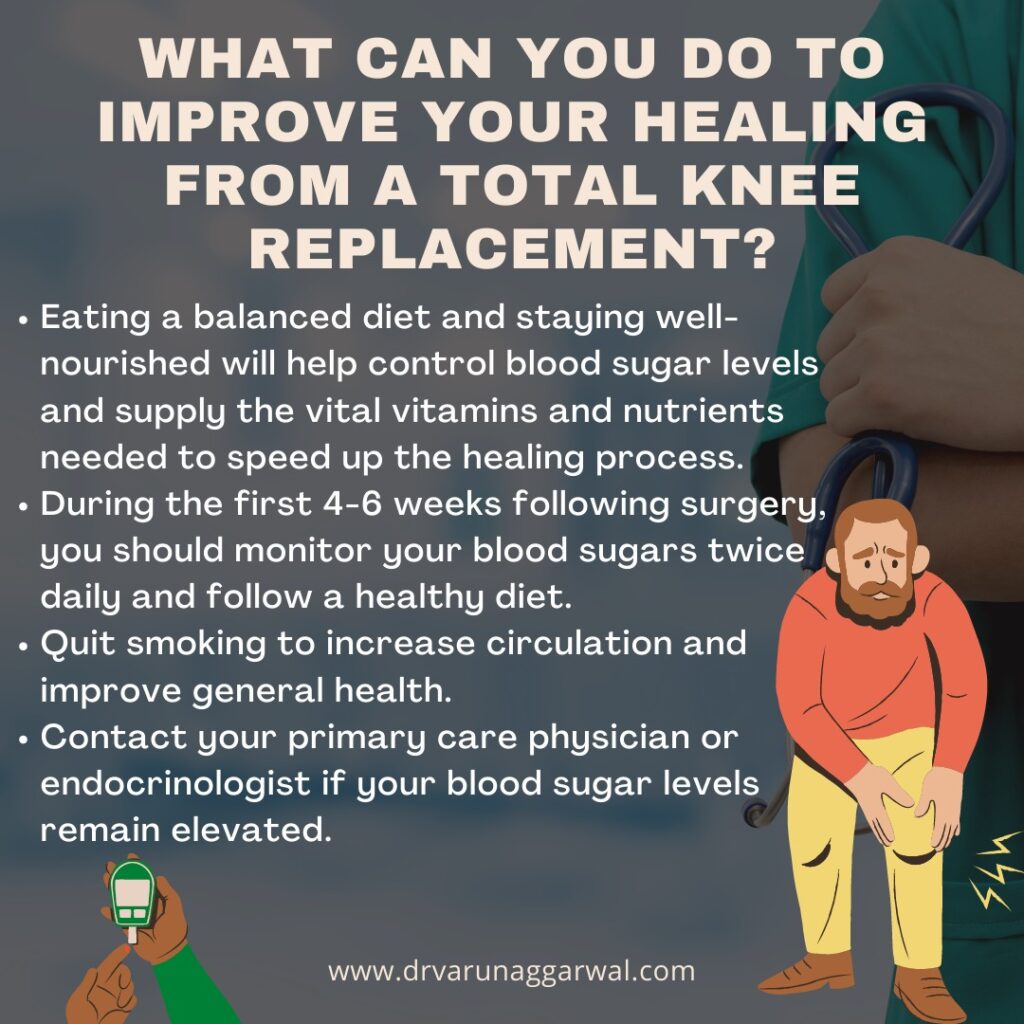People living with diabetes know better than anyone that their rule book for general health is different from others. Diabetics may face additional risks if they undergo knee replacement or knee arthroplasty. However, the impact of high sugar and bp levels on the outcomes of a knee replacement surgery is mixed. This article aims to clarify the myths surrounding total knee replacements for diabetics.
First of all, it is crucial to understand how advanced knee replacement surgery has become. Early on, it was necessary to make an incision in the muscle in order to reach the joint replacement, which required blood transfusions as well. As a result, recovery was difficult and required months of time.
In contrast, with the latest Painless and Minimal-Stitch knee replacement surgery, most normal patients are able to walk on the same day and are back to their normal lives within a few weeks. So, total knee replacement surgery is safer in most cases when performed using the latest technology.

Possible Surgery Complications Associated With Diabetes
Two studies from Sichuan University in China and Duke University in North Carolina published in the Bone and Joint Journal in 2014 and 2009 suggest that people with diabetes have a significantly higher risk of postsurgical complications. These include the possibility of joint loosening, deep vein thrombosis (blood clot), fracture surrounding the implant, and wound infection, especially if the patient’s diabetes is poorly controlled.
High blood sugar, the hallmark of diabetes, adversely affects many organs and processes in the body, leading to surgical complications. One study also found that preoperative hypertension contributes to poorly controlled hemodynamics during joint replacement surgery.
No Complications From Surgery For Patients In The Kaiser Study
The Journal of Bone & Joint Surgery published a large study in 2013 that found no link between diabetes and adverse surgical outcomes. A retrospective review of more than 40,000 Kaiser Permanente patients who had knee replacements was conducted in that study.
The Kaiser study found that patients with diabetes tended to be healthier, be well-controlled, and have better outcomes overall. Researchers find it harder to draw statistically significant conclusions due to the rarity of negative outcomes and uncontrolled diabetes in the study.
The Kaiser study suggests that elective total knee replacement surgery need not be delayed if diabetes is uncontrolled. However, it is important to keep in mind that this is a retrospective study that is lacking some very crucial information, such as the type of diabetes treatment, duration of diabetes, and the status of diabetes control during hospitalisation.
Annette L. Adams, PhD, research scientist at the Kaiser Permanente Southern California Department of Research and Evaluation in Pasadena and lead author of the Kaiser study, says diabetes should still be a major factor in people planning total knee replacement surgery because more research is needed to confirm how diabetes and its control may affect the outcomes of knee replacement surgery.
Therefore, when thinking about major surgery, doctors and patients need to be aware of the presence of diabetes.

What Can You Do To Improve Your Healing From A Total Knee Replacement?
It is believed that diabetes slows recovery from knee replacement surgeries. A patient can take a number of steps to speed up the healing process. The management of blood sugar is of utmost importance. By taking the following actions, healing can be enhanced:
- Eating a balanced diet and staying well-nourished will help control blood sugar levels and supply the vital vitamins and nutrients needed to speed up the healing process. Consuming enough protein, carbs, and vitamin C are crucial for healing. If necessary, consult a qualified dietician with expertise in diabetes.
- During the first 4-6 weeks following surgery, you should monitor your blood sugars twice daily and follow a healthy diet.
- Quit smoking to increase circulation and improve general health.
- Contact your primary care physician or endocrinologist if your blood sugar levels remain elevated.
Click here to contact for more information


